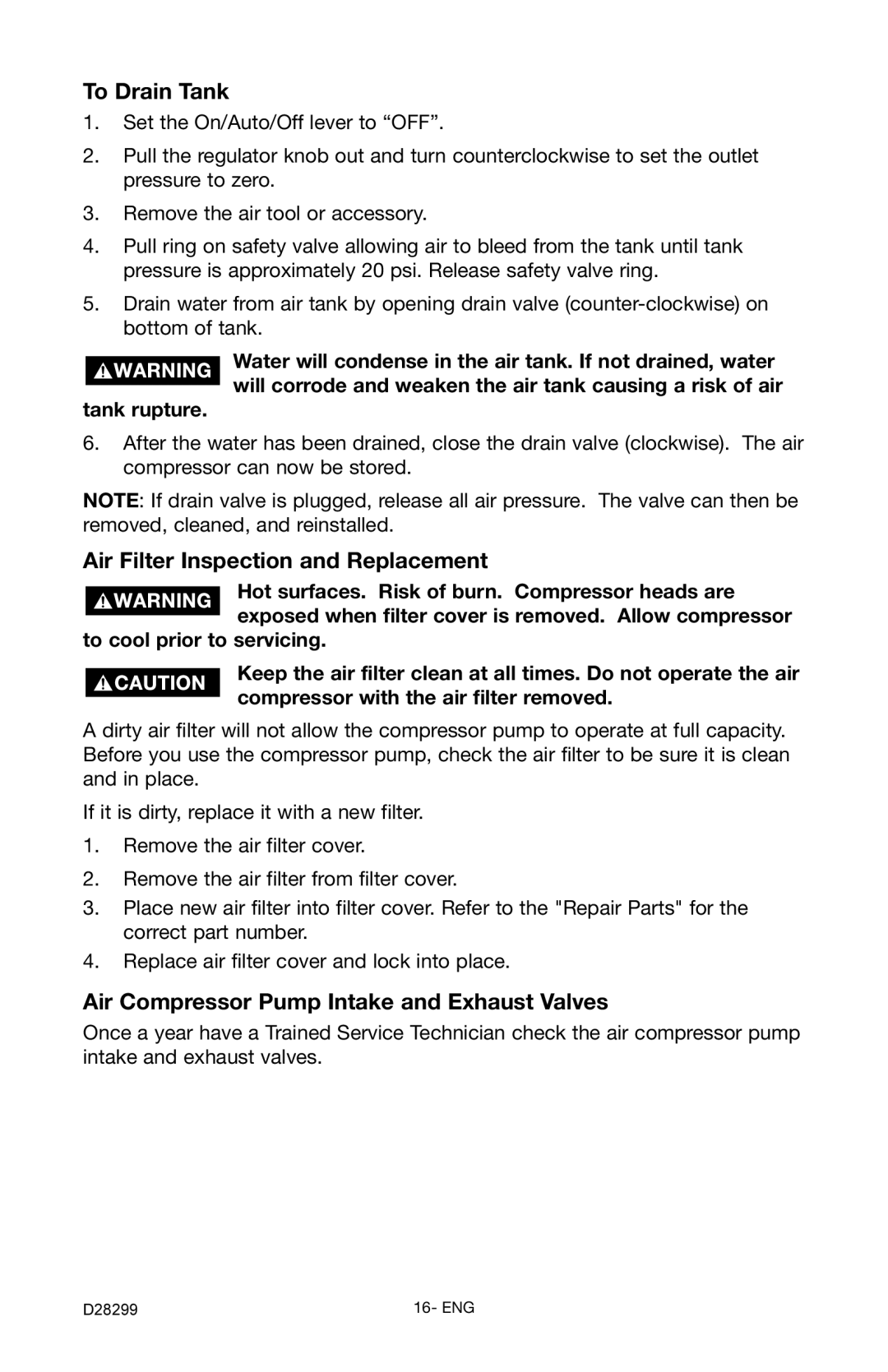
To Drain Tank
1.Set the On/Auto/Off lever to “OFF”.
2.Pull the regulator knob out and turn counterclockwise to set the outlet pressure to zero.
3.Remove the air tool or accessory.
4.Pull ring on safety valve allowing air to bleed from the tank until tank pressure is approximately 20 psi. Release safety valve ring.
5.Drain water from air tank by opening drain valve
Water will condense in the air tank. If not drained, water will corrode and weaken the air tank causing a risk of air
tank rupture.
6.After the water has been drained, close the drain valve (clockwise). The air compressor can now be stored.
NOTE: If drain valve is plugged, release all air pressure. The valve can then be removed, cleaned, and reinstalled.
Air Filter Inspection and Replacement
Hot surfaces. Risk of burn. Compressor heads are exposed when filter cover is removed. Allow compressor
to cool prior to servicing.
Keep the air filter clean at all times. Do not operate the air compressor with the air filter removed.
A dirty air filter will not allow the compressor pump to operate at full capacity. Before you use the compressor pump, check the air filter to be sure it is clean and in place.
If it is dirty, replace it with a new filter.
1.Remove the air filter cover.
2.Remove the air filter from filter cover.
3.Place new air filter into filter cover. Refer to the "Repair Parts" for the correct part number.
4.Replace air filter cover and lock into place.
Air Compressor Pump Intake and Exhaust Valves
Once a year have a Trained Service Technician check the air compressor pump intake and exhaust valves.
D28299 | 16- ENG |
